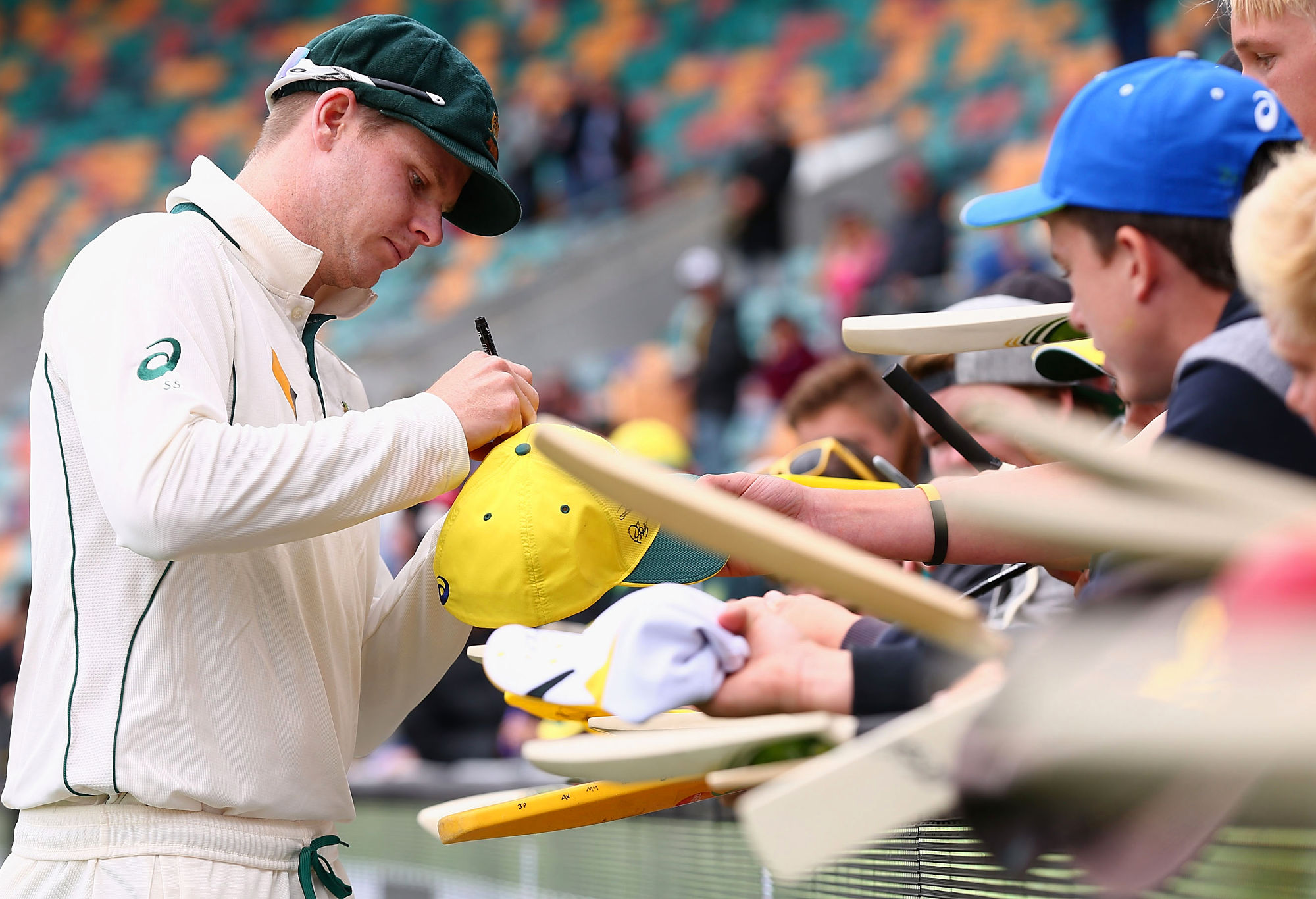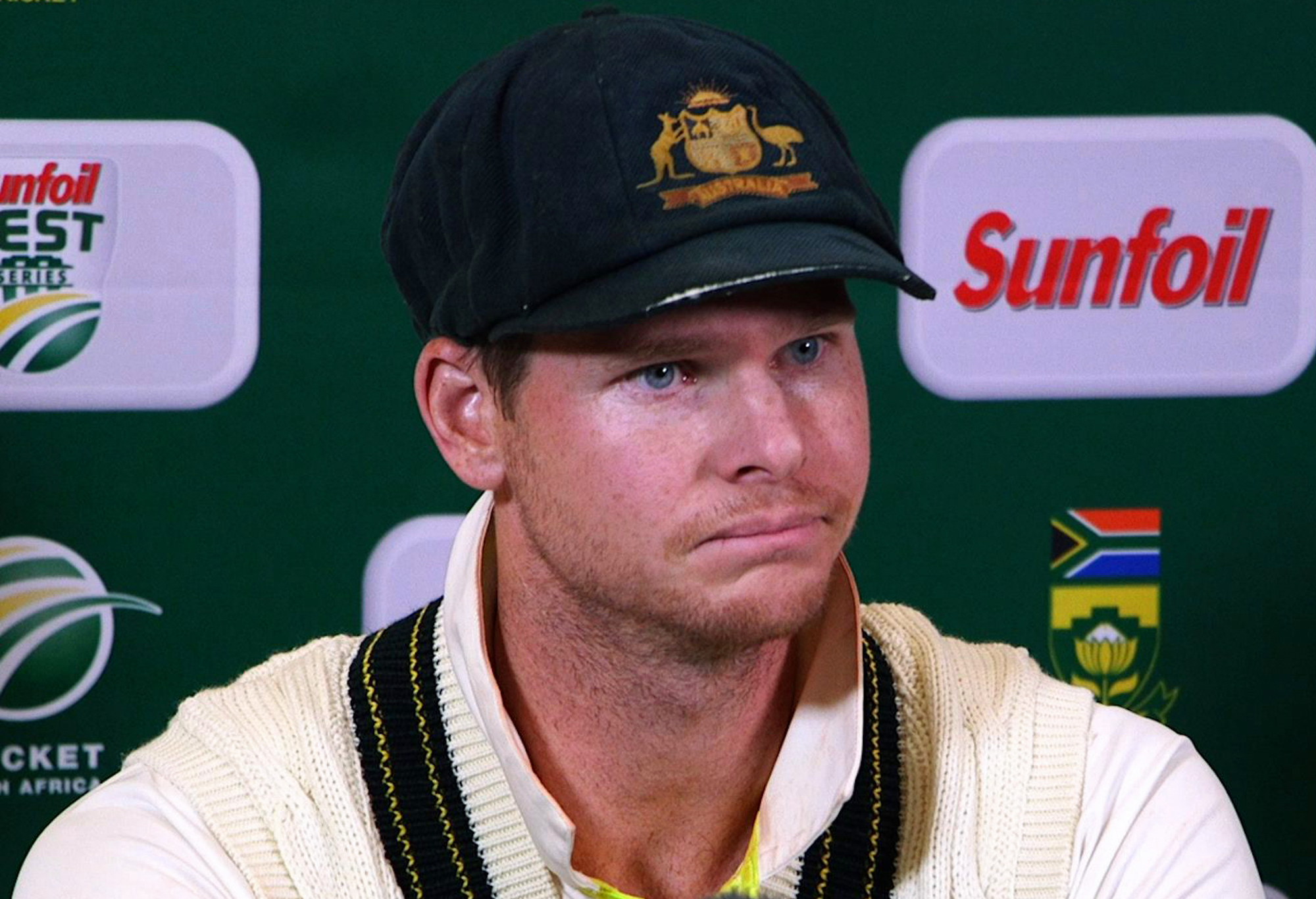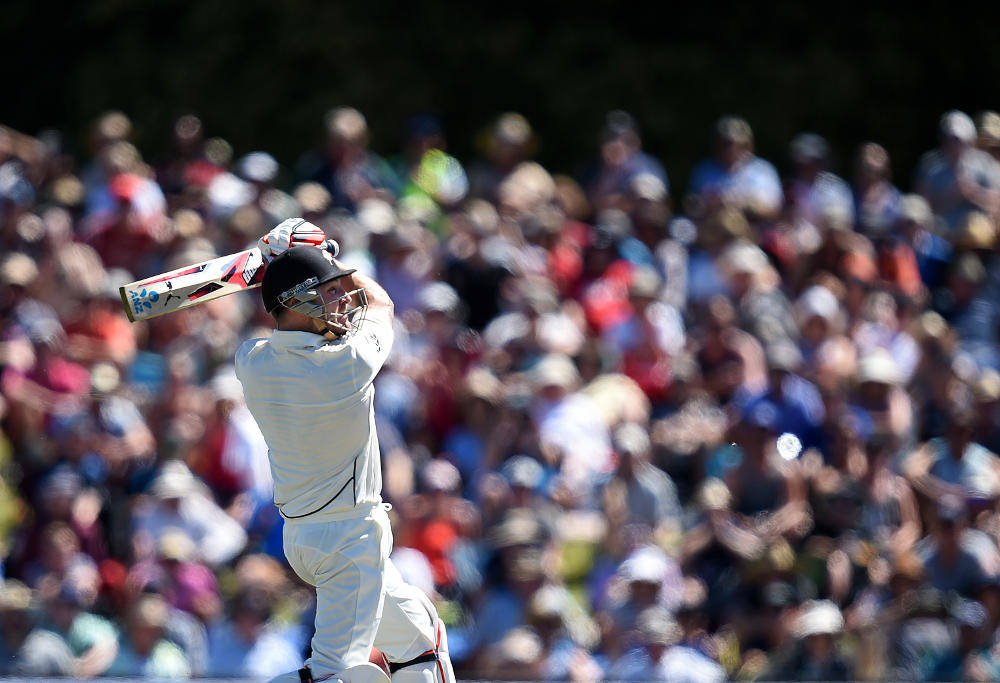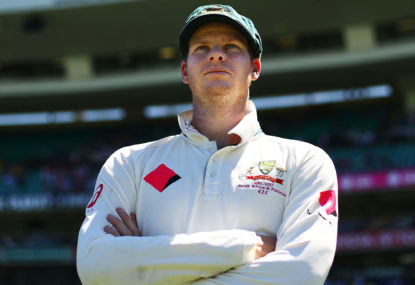The reaction to Steve Smith’s involvement in the ball tampering controversy in South Africa has been a pot pourri of the considered, sharply observed, hysterical, vindictive and misguided.
More than anything else, it has been intense, on a scale that transcends sport, relegating the transgressions of national figures such as Rolf Harris, Christopher Skase and Barnaby Joyce to nicking lunch money status.
This is Australia’s Chicago White Sox moment, where a once-loved team fixed the 1919 World Series, leading to an emotional outpouring of grief from a naïve public far less streetwise and aware than folk today. That cricket fans and the general public alike are so upset and angry with Smith speaks to the notion that the cynicism towards, and low expectations of, leaders, so prevalent in our society, does in fact have its limits.
So why is it that seemingly every man, woman and their dog feels that it is their business to have Smith placed in the stocks to have whatever punishment they determine meted out to him when he is merely the captain of a sporting team?
The answer is that the position of Australian cricket captain is no run-of-the-mill sporting appointment. When Kim Hughes shed tears at his resignation press conference in 1984, here was not another mortal cricketer folding under the intense pressure of a genuinely frightening West Indies pace attack, but a weak, deficient sook, very publicly calling into question the virility of all Australian men.
Smith’s crime is not that he has slandered the reputation of Australia’s manhood, but that he has implicitly destroyed Australia’s reputation as a people who compete hard but fairly.

(Photo by Robert Prezioso – CA/Cricket Australia/Getty Images)
The Australian psyche is that it is okay to be a little rough around the edges, in a Paul Hogan, shrimp on the barbie type of way, or to take a sickie from work for the hang of it. But while individuals may differently interpret what constitutes a ‘fair go’, it is important for Australians to believe that the rest of the world respects them for knowing right from wrong.
It is of no consequence that the integrity of cricket has been bruised, battered and dismembered many times over by players from all countries. And no matter the overreach in the demands from many that Smith never plays cricket again. Rightly or wrongly, for many Australians this matter is personal, by extension it is their reputation that has been sullied and their contract with the Australian captain that has been so savagely torn apart.
No better was this evidenced in the reaction of Prime Minister Malcolm Turnbull on Sunday, as the story took on a life of its own. Politicians interjecting into sporting matters are almost always fertile grounds for cynicism, but for a struggling Turnbull, this incident suddenly provided him with an opportunity to appear authentically prime ministerial – expressing his personal shock and disappointment, simultaneously speaking for many people in doing so.
Here was a man as genuinely hurt and confused as any fourth-grade suburban cricketer – an all too rare moment of non-confected, non-media managed empathy and connection with Australian people.
While some have pointed to a link between Smith’s actions and the gradual moral and behavioural decline in our politicians, in a ‘why should we be so surprised?’ kind of way, what is informative is the public reaction and difference in perspective to Smith’s cheating compared to the voting rorts scandal that has recently engulfed the Victorian government.
On one hand here is a sportsman engaged in an unlawful activity deemed so heinous by the game’s governing body to warrant a mere one-match suspension, versus a government found by the state Ombudsman to have wrongly engaged in an “artifice” to obtain an unfair advantage at the 2014 state election, spending nearly $400,000 of taxpayer money in doing so.
For his troubles Smith has found himself leading every news bulletin and every Twitter feed for days, and he will continue to remain under the blowtorch for weeks to follow.
By contrast, Victorian Premier Daniel Andrews has been held to account for cheating by one pursuing newspaper but ridden it out while other media have lost interest. For some, it is just another ho-hum story of politicians having their snouts in the public trough, but for others, it is the increasing partisanship of the media that is the reason why the story has slipped off the radar.
Unfortunately for Smith, there is no political left and right to savage him on one hand and save him on the other. He, and the position of Australian cricket captain, belongs to everyone, and he is a cheat in everyone’s eyes, left and right.

(STR/AFP/Getty Images)
It doesn’t help that Smith and David Warner were both last year the face of a push by Australian cricket players to receive a greater share of Cricket Australia revenue. It was, as these types of pay disputes often are, an ugly matter, played out in the public arena, with both sides striving to claim the moral high ground and the support of fans.
Implicit in their approach was the notion that the players deserved a ‘seat at the big table’, where, because they were chiefly responsible for generating the revenue in the first place, they should have a voice in determining how that money should be spent.
It is acutely ironic that today, the quantum of that revenue number is likely to be reduced – not wholly, but in part due to the stupidity of the actions of these very same players – and that those players have proven so emphatically that they are not fit to be allowed anywhere near a boardroom table or any pot of money that isn’t their own.
Another point of anger is that Test cricket is currently in an existential battle to retain its relevance and status, in the face of a multitude of what are purported to be complementary, but which really are competing, short-forms of cricket.
Had this same ball tampering incident occurred while Cameron Bancroft and Smith were playing for a Bangladeshi T20 franchise, it would have been brushed off as no more or less than what could be expected from a form of the game that worships the generation of cash more than the pure form of cricket.
In this case, context is everything. Smith is representing Australia, and in the wash-up, Test cricket has shown itself to be ‘real cricket’ and something worth protecting. Perhaps in the long run, Smith will be shown to have done Test cricket a favour, although at a crippling personal cost.
[latest_videos_strip category=”cricket” name=”Cricket”]
The episode also exploded to life this week on ABC Melbourne radio, where indignant callers, e-mailers and texters demanded an end to government funding of sportspeople – in particular the AIS – as well as demanding that governments redirect spending on sport to ‘more worthy’ pursuits such as the arts.
Never mind that the AIS and many of its subsistence level living athletes in low-profile Olympic sports are light years removed from the riches of the Indian Premier League available to Smith, or that, in the free-market commercial world, musicians, actors and writers can already earn multiples more than what Smith earns – if indeed they are good enough or have the motivation to do so.
Even if this was nothing more than misguided bleating about the lack of parity and fairness in Australian society, it only reinforced again how Smith belongs not only to the suburban kids and dads who front at Kanga cricket, but to the tree huggers of Northcote, and everyone else in between.
What is also galling for Australians is that any sense of moral superiority over cricket enemies like India, South Africa and England must now be conceded. Sure, they have done the similar things – in some cases on multiple occasions – but the public outcry confirms that Australians insists upon being better than that.
This is bought into even sharper focus by the side setting itself up as the moral guardians of crickets’ ‘line’ of what is and isn’t acceptable behaviour. Remember that the real reason a lynch mob pursued Barnaby Joyce for days was not because he conducted an affair, but because of his hypocrisy in leading a ‘family values’ crusade against same-sex marriage while doing so.
In these pages in recent years, New Zealand skipper Brendon McCullum was pilloried – by many who sarcastically called him Saint Brendan – for overtly attempting to raise standards of sportsmanship and respect for the opposition.

(AAP Image/Dave Hunt)
As ham-fisted as McCullum’s approach may have been, many of those detractors are today facing the realisation that McCullum was, in fact, right – New Zealand now not only basking in the glory of a decisive Test win over England, but sunning itself on the moral high ground for the manner in which it was achieved.
And while New Zealand too has had players involved with ball tampering and other unsavoury incidents over the years, every single cricket follower knows what current captain Kane Williamson would have said and done, had a plan to cheat in this manner been suggested to him.
Australians like their leaders to be strong people who, if for some reason the wrong thing is done, take responsibility for their actions. Smith may have felt that a quick, casual mea-culpa at the initial press conference following the incident would be sufficient to blow the matter over, but he clearly had little sense of how actual leadership and responsibility extends far beyond a few weasel words.
In Australia’s court of public opinion Smith is not only guilty of ball tampering, but the far more heinous crime of being a leader who let a young charge take much of the heat, and who then implicated other teammates through his imprecise, unconvincing comments.
Strong leaders either admit to nothing and ride out the consequences or, if a confession is what is required, make those admissions frankly and unambiguously.
Smith’s reaction was half-arsed and today he is paying a heavy price for that. If that price outweighs the actual offence, at least Smith will have plenty of time outside of the game to come to terms with how the position of Australian cricket captain comes with a huge caveat: everybody owns you.
































































































